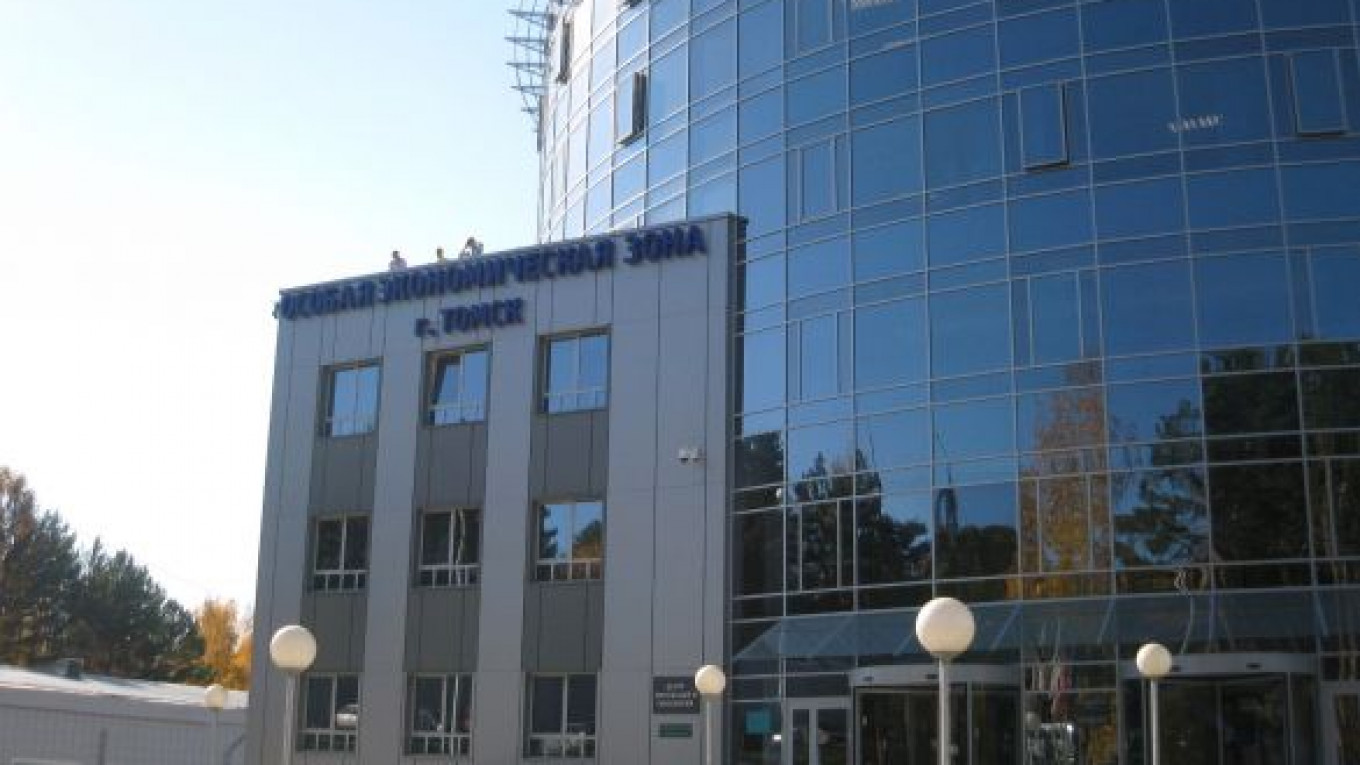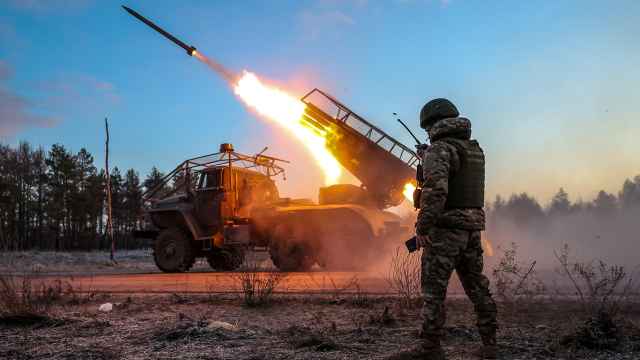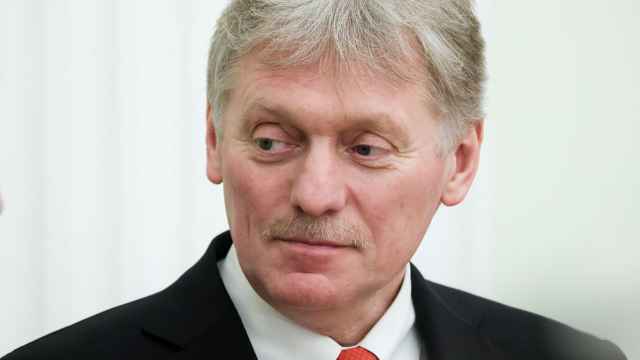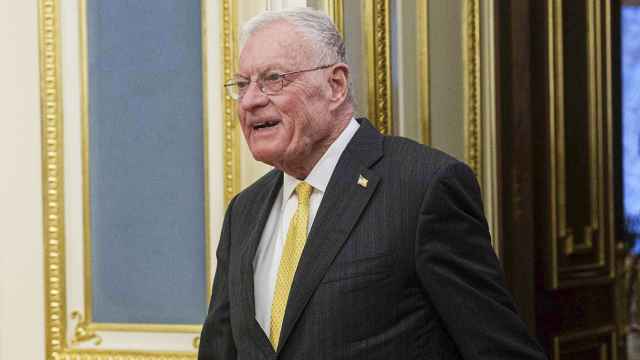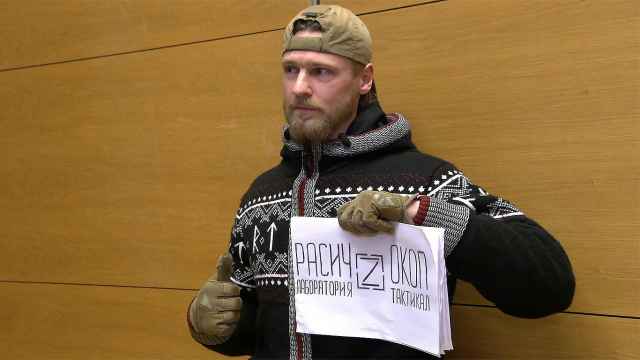The middle of Siberia might not be the first place that comes to mind for investors wanting to do business that does not necessarily involve natural resources, but authorities in Tomsk are undaunted by their remoteness from Moscow as they try to attract companies to the region.
In 2010, Forbes rated Tomsk — which lies 3,500 kilometers east of the Russian capital — the 26th best Russian city for business, excluding Moscow and St. Petersburg. It is the first time Tomsk has made the top 30. The ratings took into account social factors, business climate, infrastructure and convenience of doing business.
Tomsk's authorities believe that the region's remoteness and long Siberian winters, when the temperature from November to April stays firmly below freezing and has been known to drop as low as minus 50 Celsius, pose no obstacle to its economic development. "The key," said Tomsk Governor Viktor Kress, "lies in diversification." In Soviet times, Tomsk concentrated on the military industry as well as oil, gas and timber, but it is now turning its attention to new technologies and innovation.
The region got a boost in 2006 when it was named one of the country's four special economic zones, or SEZs, for innovation — specializing in nanotechnologies, information technology, electronics, biotechnology and medicine. The SEZ status attracts investors by providing a range of tax benefits — for example, SEZ residents pay no import, land or property tax, receive a 4 percent discount on profit tax and significantly reduced social taxes.
Residents of the two technology parks located on the edge of the city — a "southern" and a "northern" site — also benefit from state-funded utilities and road infrastructure. The federal budget provides 74 percent of funding, and 26 percent comes from regional coffers.
So far, the Tomsk SEZ has attracted 59 residents, which employ more than 800 people. Nine of the residents are backed by foreign investors, including Nokia Siemens. By 2015, they plan to have 85 residents.
"We are not in competition with Skolkovo," said Alexei Baryshev, general director of the Tomsk SEZ. "On the contrary, we complement one another. Skolkovo is more of a technical university, concentrating on education and research. As a special economic zone, we are more focused on the realization of research, bringing it to production," he said.
Tomsk is also recognized for its impressive education system — the city is home to six universities, with the Tomsk National Research Institute being ranked fifth in this year's survey of the country's top institutions.
Mayor Nikolai Nikolaichuk is proud to boast that every fifth resident of Tomsk is studying, giving the city of half a million people the highest proportion of students per population of any urban area in the country — and a youthful, vibrant air.
With average salaries significantly lower than in St. Petersburg or Moscow and 12,000 students graduating every year, Baryshev said, Tomsk provides employers with an inexpensive, well-trained work force, a point reinforced by the 2010 Forbes ratings, which highlighted the high level of education and lower wages as Tomsk's main selling point for attracting investors.
This view is backed up by Terje Hauan, chief executive of EMTEK, a Norwegian company specializing in oil and gas exploration that created a local legal entity in Tomsk.
The company didn't choose Tomsk because of its SEZ status, but rather the high technical skills of the scientists there, Hauan said.
"It does not help to create a SEZ when you don't have the supporting activities around the SEZ," he said. "There is no culture and no understanding of risk and reward." Hauan said Russia lags 15 years behind the West in understanding the "circle of innovation," and that the people and their technological skills are the only reason EMTEK decided to invest in Tomsk.
Vagif Sultanovich Sultanov, president of Australia-based Solagran Limited, another SEZ resident, which manufactures a range of therapeutic substances from Siberian pine needle extract, said Tomsk was chosen because it is a serious science and education center — the SEZ played no role in the decision.
Another foreign investor in Tomsk, California-based RoviCorp, also sees human talent as the main attraction. "The major consideration for continuing to maintain the location is the talented group of developers we have working for us there," spokesman Chris Taylor said. "As a college town producing engineering graduates, Tomsk is also a good location to hire and nurture new talent."
Mayor Nikolaichuk understands the value of the human element. The task lies not only in attracting students to Tomsk — already three-quarters come from outside the city to study there — but in keeping them after they graduate, he said.
Providing employment opportunities is a major factor, but trying to make the city an attractive place to live is equally important. "We have to make sure the city looks good, is clean and that we have social programs, for example, to help teachers and doctors," Nikolaichuk said. Tomsk provides substantial mortgage subsidies to lower-income families — the city budget will pay an initial fee of 150,000 rubles ($4,700) and subsidize interest payments of 13.5 percent for 10 years for people buying their first home. Nikolaichuk described this as "the best mortgage deal in Russia." The city also has 20,000 kindergarten places, up 42 percent from three years ago.
Governor Kress said Tomsk suffers from two factors that can hinder its investment prospects — the transportation infrastructure and the climate.
He said massive federal investment in roads and rail connections could help to solve the transport issue. A new international terminal, due to open at the Tomsk airport in mid-2012, is being financed by a mixture of federal, regional and private funding, at a total cost of 1.6 billion rubles ($49.1 million). He has no plans to address the challenges presented by the climate.
A Message from The Moscow Times:
Dear readers,
We are facing unprecedented challenges. Russia's Prosecutor General's Office has designated The Moscow Times as an "undesirable" organization, criminalizing our work and putting our staff at risk of prosecution. This follows our earlier unjust labeling as a "foreign agent."
These actions are direct attempts to silence independent journalism in Russia. The authorities claim our work "discredits the decisions of the Russian leadership." We see things differently: we strive to provide accurate, unbiased reporting on Russia.
We, the journalists of The Moscow Times, refuse to be silenced. But to continue our work, we need your help.
Your support, no matter how small, makes a world of difference. If you can, please support us monthly starting from just $2. It's quick to set up, and every contribution makes a significant impact.
By supporting The Moscow Times, you're defending open, independent journalism in the face of repression. Thank you for standing with us.
Remind me later.


